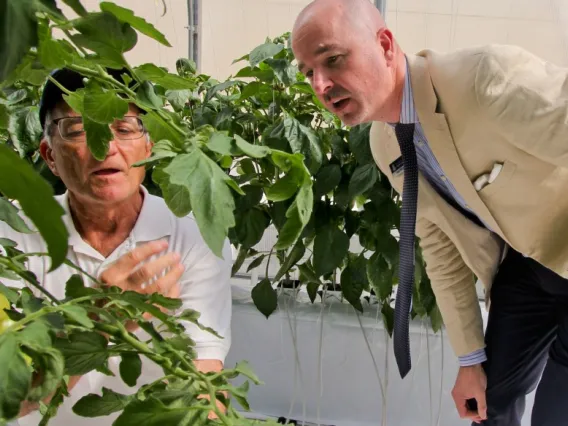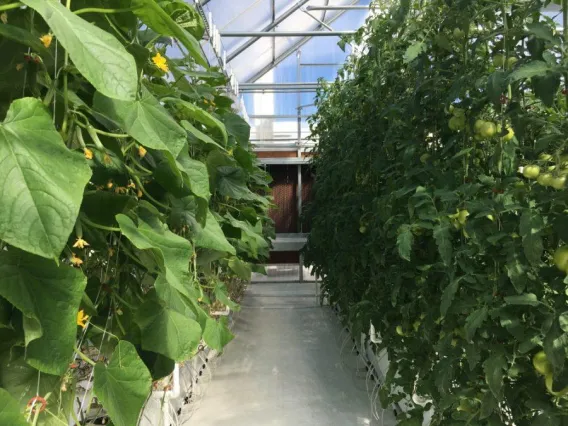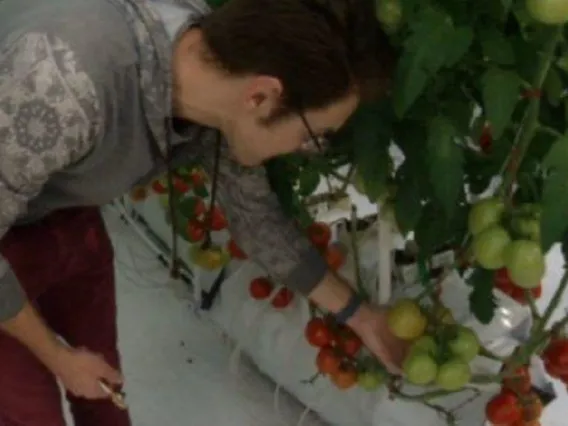From Student Vision to Campus Reality
During the spring semester of 2017, the Arizona Student Unions hosted a Rooftop Garden Design Competition open to all UA students. Their challenge was to take a hypothetical $50,000 budget and design a cost-effective, productive, and sustainable Rooftop Garden to provide fresh produce for the Campus Pantry.
In partnership with the Office of Student Engagement, the Graduate & Professional Student Council, Shamrock Farms, and Coca-Cola, 90 students participated in 24 teams over four months. A panel of nearly 20 mentors and 10 judges from the campus and Tucson community supported the student teams throughout the competition. The winning concept helped shape today's Rooftop Greenhouse atop the Student Union Memorial Center building today.
The Greenhouse Today
The Rooftop Greenhouse opened mid-December 2018. Its mission is to support the Campus Pantry by donating all freshly harvested and sustainably grown produce weekly to help strengthen food security for students on the University of Arizona’s main campus.
As the only rooftop greenhouse at a university in North America, our Rooftop Greenhouse boasts a recirculating hydroponic drip system and Controlled Environment Agriculture (CEA) technology to grow fruiting vegetables throughout the school year, from August to May, with 30% less water than field crops. It utilizes Integrated Pest Management (IPM) to holistically manage pests and grow clean, pesticide-free produce.
What We Grow
The type of produce grown in the Rooftop Greenhouse can vary from semester to semester. The greenhouses averages over 1000-3000 lbs of produce each year.
800 Pounds of Cherry Tomatoes
3,000 Pounds of Cucumbers
1,200 Pounds of Cutting Tomatoes
600 Pounds of Bell Peppers
Student-Run & Community Supported
The Student Unions is proud to see this 100% student engagement initiative come full circle: designed by students, managed and operated by students, and all produce given back to students. The Greenhouse is managed by two paid student positions per semester, providing hands-on learning in crop production and greenhouse management. It is supported by the Biosystems Engineering Department and Controlled Environment Agriculture Center.




